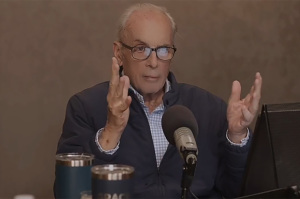Will the U.S. Face Crisis If Debt Ceiling Is Not Raised?
Congress has until August 2 to raise the debt limit. If that does not happen, the federal government will have to make some tough choices on which bills to pay beginning August 3.
President Obama has warned that if the debt ceiling is not raised, Social Security checks may not go out in August. Obama also continues to warn that we may default on our debt if the debt ceiling is not raised.
Rep. Louie Gohmert (R-Texas), a member of the House Tea Party Caucus, accused Obama of using “scare tactics,” and said that Obama is getting bad advice from people who are “lying” to him.
“There is money there regardless of what we do,” said Gohmert.
Others in the Tea Party Caucus also take the view that the debt ceiling does not need to be raised. Rep. Michele Bachmann, for instance, emphatically said in one of her presidential campaign ads that she will not vote for a debt ceiling increase.
Who is right? Will we default on our debt on August 3? Can we maintain our current level of debt without dire consequences?
Debt Default
An analysis of these questions was conducted by the Bipartisan Policy Center, a think tank founded by two retired Republican Senators, Howard Baker and Bob Dole, and two retired Democratic Senators, Tom Daschle and George Mitchell.
According to its report, the federal government will receive about $172 billion and have bills totaling about $307 billion in August. This leaves a shortfall of about $135 billion.
To keep from defaulting on our nation's debt obligations, the Treasury Department would first need to pay the interest on the treasury bills due in August, which will be about $29 billion. Since there will be $172 billion in revenue in August, there will be more than enough money to pay the nation's debt obligations and there will not be a default.
Jay Powell, who served as Under Secretary of the Treasury under George H. W. Bush and is a Visiting Scholar at the Bipartisan Policy Center, made this point in an interview on The Newshour.
“There's always going to be enough money to pay the interest on the debt, and it's very unlikely that there will be an actual debt default,” said Powell.
Tea Party Republicans are correct, therefore, when they say that there will be enough revenue to avoid a default. What about Social Security payments?
Social Security
Social Security payments in the month of August will be about $49 billion. If we subtract the interest on the debt ($29 billion) from August revenue ($172 billion), we are left with $143 billion, more than enough to send out Social Security checks.
Tea Party Republicans are correct again. There will be enough revenue in August to avoid default and to make sure seniors get their Social Security checks.
The available options after those payments are made, however, with only $94 billion left, get more difficult. As Powell points out, we may not default on debt, but we will “default on lots and lots of very important payments.”
Treasury Secretary Timothy Geithner will be in the unenviable position of trying to decide which payments will be made and which will not be made.
Other Bills
Other bills that will be due in August include:
- Medicare and Medicaid payments ($50 billion)
- Money owed to defense vendors that produce equipment for the military ($32 billion)
- Unemployment benefits ($13 billion)
- Military active duty pay ($3 billion)
- Veterans Affairs programs ($3 billion)
- Salaries and benefits for federal government employees ($14 billion)
These bills already total $115 billion. At least $21 billion would need to be cut from the programs above and it would still leave the following unfunded: IRS refunds, Food Stamps, Temporary Assistance for Needy Families, the Department of Labor, the Department of Justice (including federal courts and the FBI), the Department of Energy (including nuclear power plant safety), Health and Human Services grants, the Federal Highway Administration, the Environmental Protection Agency, the Small Business Administration, the Federal Transit Administration, HUD programs (housing assistance for the poor), the Department of Education (including Pell Grants for college students returning for the fall semester), and a host of other government programs.
While Tea Party Republicans are correct when they say that there will be enough revenue to avoid default and pay Social Security benefits, they are incorrect to suggest that the current debt ceiling can be maintained without major disruptions. Failure to increase the debt ceiling will, as Powell points out, “have significant effects on our economy and that will ripple throughout the global economy as well.”
Republicans point out often in this debate that the debt ceiling increase was requested by President Obama. This is true, but it was requested by President Obama so that he can carry out Congress' spending orders.
In the Constitution, Congress is given authority over the budget. The spending has already been authorized by Congress, and the President is required to carry out Congress' spending orders. Some of those spending orders were passed by Democratic led Congresses, some were passed by Republican led Congresses.
The debt ceiling itself is odd in one sense – Congress already authorized the spending, then it needs to authorize the borrowing necessary for the spending it already authorized. Most nations do not have a debt ceiling.
Bloomberg news created an interactive tool, based upon the Bipartisan Policy Center's calculations, where you can play the role of Treasury Secretary by prioritizing which payments should be made and which should not be made.
The U.S. national debt is currently over $14.5 trillion with over $114.7 trillion in unfunded liabilities.





























